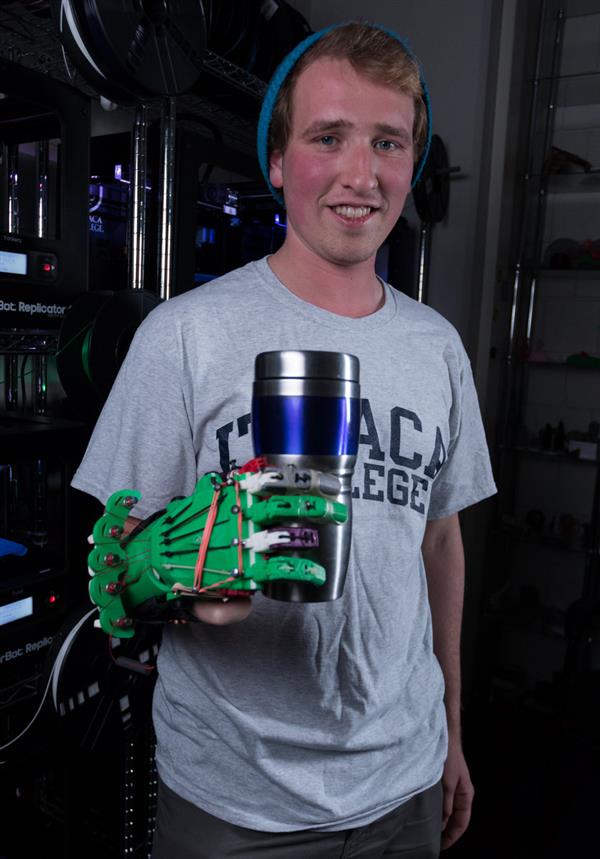Ryan Bouricius, a university physics student from Ithaca College, once again demonstrated how 3D printing technology can be used to create functional and very affordable prosthetic hands. By innovating the design, learning and improvement of other open source prosthetics, the student can develop the prosthesis to grasp, hold, and even write.

It is well known that one of the medical applications of 3D printing is the production of functional prosthetic hands. While 3D printed devices may not be as smooth or unobtrusive as professional designs, an affordable and customized solution has been proposed to help many people who cannot afford expensive prosthetic implant treatments. Especially for children, as children have been growing, fixed-length prostheses can't meet their needs, and there is an easy way to make custom-made prosthetic hands that will be particularly attractive.
Borricius is a teaching assistant at the Ithaca Academy's 3D printing lab. Inspired by many open source designs, he created his own 3D printed manual prosthesis, which he can print and assemble 3D printed hands in a single day. After successfully completing his first hand, he decided to make some adjustments and improvements to his design.

First, Bouricius changed the direction of the thumb of the 3D printed prosthesis so that it could grip the object more effectively. He also made some other adjustments to improve the grip of the 3D printer. Like many other 3D printed hands, Bouricius' prosthetic movement is controlled by the user's wrist movement. During the development process, he tried to use the prosthesis as much as possible, not only to see how it works, but to better understand how to live with the prosthesis.
Overall, Bouricius is able to produce functional 3D printed prosthetics at a low cost of $15. As he explained, "The advantage of 3D printing is that the price depends only on the amount of plastic used, not the complexity, so even if my mods are complex shapes, as long as the same amount of plastic is used, the price is the same. ""

Professor Michael Bodhi Rogers, the student's director, said that 3D printed prostheses are superior to electronic prostheses in some respects, and electronic prostheses are often expensive and complicated to repair. In contrast, 3D printed prostheses cost only $15 to manufacture and can be repaired by simply reprinting to replace parts. In addition, through non-profit organizations like e-NABLE, 3D printed prosthetic hands are becoming easier to grab, helping many people who don't have access to top healthcare.
In fact, Bouricius will work with e-NABLE to find the right user for his 3D printed prosthesis. "They know that I live in New York, so if someone contacts them, they will look at the map and tell them that they have someone at Ithaca College," Bouricius said. "Once they contact us, everything is done by me." â€
e-NABLE is an organization that provides children with 3D printed prostheses through their volunteer network, which has changed the lives of people around the world.
(Editor)
Hair Bleach,Salon Bleaching Powder,Hair Lightener Powder,Dust Free Hair Bleacher
DELIN HAIR COSMETICS , https://www.hairdyecolorfactory.com